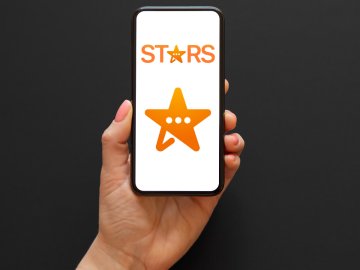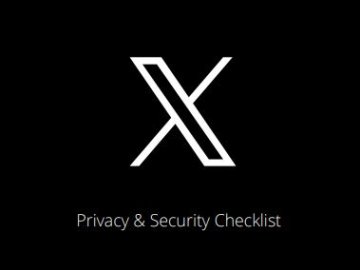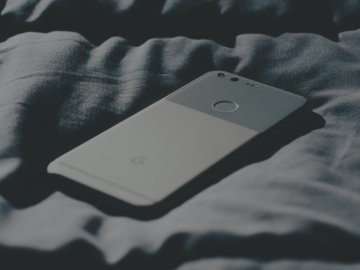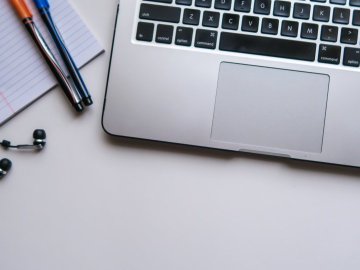In the age of social media, smartphones and apps, we’ve been lucky enough to have a quick and accessible way to buy and sell personal items. While car boot sales and local newspapers still have their place, there’s nothing quite like snapping a photo of something we don’t want anymore, posting it online and waiting for some interest to come in. There’s no denying that apps and channels such as Facebook Marketplace, Ebay, Vinted, Schpock and Depop have revolutionised the way we connect with others to sell our items.
But while we can marvel at the thrill of finding hidden gems along with the ease of bringing some extra money in, there are several things to consider when using these spaces to ensure we are appropriately protecting ourselves online. We must remember that using a platform to buy and sell items regularly involves communicating with strangers along with sharing personal details.
Therefore, before you start, it’s good to fully understand the process of buying and selling items online and what may need to be considered throughout. Take a look at some of our guidance below.
Communicating with Strangers
Depending on what platform you use, you are often able to communicate with the buyer or seller. This is usually provided so individuals can request more information about the item, as well as organise an acceptable arrangement to deliver/ receive items. Many people online will often engage in positive interactions, but it is good to take a grounded approach and consider that some individuals may use these platforms for harmful purposes such as scamming. Remember, there is no obligation to communicate with someone who is being offensive, intimidating or harmful. Many of these apps will have reporting and blocking features, so if needed, use them to your advantage. (See below)
Sharing Personal Information
Depending on who you interact with, you may be asked to share personal information such as home addresses and bank details to ensure delivery or acceptance of items. As well, if you have set up a particular profile on these apps, the information you have provided such as your username or bio is also likely to be seen by others (depending on your privacy settings). Sometimes a username may include identifiable information like your name or date of birth, but you don’t have to include this information if you don’t want to. While these processes may support you to complete a transaction, it is appropriate to first consider whether you are comfortable to share these details with people you don’t know. Don’t feel pressured into divulging anything you don’t want to.
Don’t Over Advertise When Selling
Whether it’s some old clothes, some garden furniture or a brand-new microwave, it’s important to not overshare and keep listings focused and simple. Make sure photos only include what you’re selling, without anything on show that could be compromised e.g. bank statements or personal photos. As well, keep descriptions focused around the item itself without divulging too much around why it is being sold or any personal circumstances that may relate to it – buyers don’t need to know this. If someone requests further information or photographs, maintain appropriate boundaries and do not provide anything that is clearly unneeded for the purposes of selling e.g. a photograph of yourself. As an alternative, you could always use editing tools to hide anything in photos you don’t want to share. If someone does request anything inappropriate though, do report this through the correct avenues (See below).
Be Aware of Scams
A lot of the items we see listed for sale will be accurate representations of what we’ll receive. Despite this, we must still be prepared for those items that may seem too good to be true or might try and mislead us with false information or hidden damages. Unfortunately, scamming can be a regular occurrence across online selling platforms, and it is up to us to critically evaluate and determine what is safe to engage with. See if you can verify the seller in any way, for example, look for any reviews, and consider whether the write up/ photographs are presented coherently with enough information and detail. You may also want to think about whether the price is an accurate representation of what is being advertised. You can research similar listings to get an understanding of their value. Most importantly, make sure there are processes in place to report and get money refunded if any violation has taken place, which can usually be found in the site's terms and conditions. If helpful, why not see if there are any payment protections or reassurances you could utilise. Finally, if you choose to meet up with the seller, ensure that no money is exchanged until you are happy with the item.
Meeting Places
Selling will require delivery of goods and many of us will take different approaches to ensure items are received. If you feel unsure about sharing your home address, there are other alternatives available. When selling or buying an item, you may feel more comfortable asking to meet in a public place or you could always ask a friend or a family member to accompany you. If this isn’t possible, you can always let a friend or a family member know when and where you will be meeting someone. As always though, if a situation is making you feel unsafe or you are in immediate danger, always phone the police on 999.
Problems and Follow Ups
When transactions are completed, communication is often expected to stop between the buyer or seller. If there are problems though, some individuals may choose to complain or request to get money refunded. In both instances, it is good to get support from the platform and utilise what measures they may have to protect individuals from being mis-sold something, or to protect buyers and sellers from unjustified complaints, harassment and intimidation. Support from platforms can include reporting functions and complaints procedures that can help to resolve the issue. Once again, if a situation is making you feel unsafe or you are in immediate danger, always phone the police on 999.
Reporting on Apps and Platforms
Take a look below at some of the most well-known online selling platforms and familiarise yourself with what features they have to protect individuals online.
Reporting Members
Facebook MarketplaceEbayVintedSchpockDepopGumtree
Blocking Members
Facebook MarketplaceEbayVintedSchpockDepopGumtree
When buying or selling personal items online, it is important to ensure we keep our safety as a number one priority whilst we enjoy the benefits of these platforms. Ensure that you are comfortable with the processes that are in place and familiarise yourself with what protections are available, should anything go wrong. If you need advice around reporting anything harmful, you can always go to Report Harmful Content for further advice.






